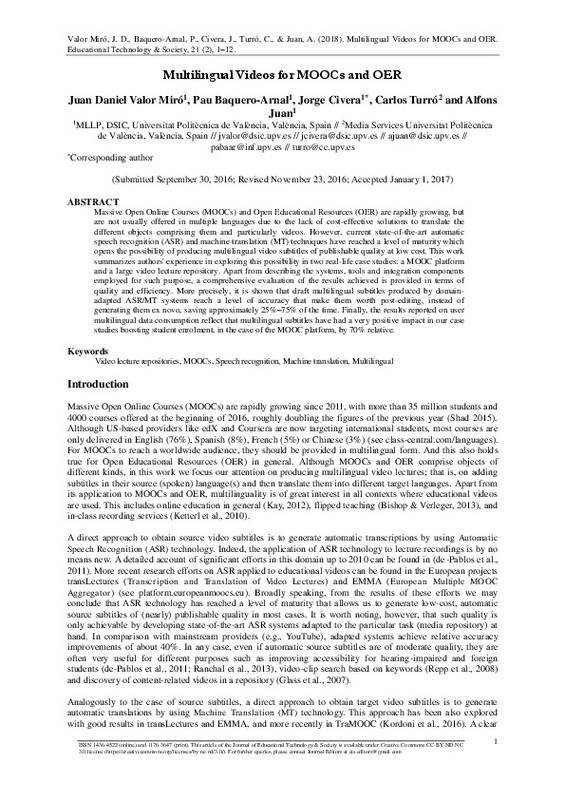JavaScript is disabled for your browser. Some features of this site may not work without it.
Buscar en RiuNet
Listar
Mi cuenta
Estadísticas
Ayuda RiuNet
Admin. UPV
Multilingual videos for MOOCs and OER
Mostrar el registro completo del ítem
Valor Miró, JD.; Baquero-Arnal, P.; Civera Saiz, J.; Turró Ribalta, C.; Juan, A. (2018). Multilingual videos for MOOCs and OER. Educational Technology & Society. 21(2):1-12. http://hdl.handle.net/10251/122577
Por favor, use este identificador para citar o enlazar este ítem: http://hdl.handle.net/10251/122577
Ficheros en el ítem
Metadatos del ítem
| Título: | Multilingual videos for MOOCs and OER | |
| Autor: | Baquero-Arnal, Pau | |
| Entidad UPV: |
|
|
| Fecha difusión: |
|
|
| Resumen: |
[EN] Massive Open Online Courses (MOOCs) and Open Educational Resources (OER) are rapidly growing, but are not usually offered in multiple languages due to the lack of cost-effective solutions to translate the different ...[+]
|
|
| Palabras clave: |
|
|
| Derechos de uso: | Reconocimiento - No comercial - Sin obra derivada (by-nc-nd) | |
| Fuente: |
|
|
| Editorial: |
|
|
| Versión del editor: | https://www.j-ets.net/ETS/index-2.html | |
| Código del Proyecto: |
|
|
| Agradecimientos: |
The research leading to these results has received funding from the European Union's Seventh Framework Programme (FP7/2007-2013) under grant agreement no. 287755 (transLectures) and from the EU's ICT Policy Support Programme ...[+]
|
|
| Tipo: |
|







